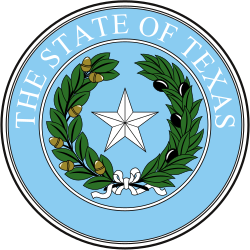| House Bill 229 | |
|---|---|
 | |
| Texas House of Representatives | |
| |
| Citation | |
| Territorial extent | |
| Enacted by | Texas House of Representatives |
| Enacted | May 9, 2025 |
| Enacted by | Texas Senate |
| Signed by | Greg Abbott |
| Signed | June 20, 2025 |
| Effective | September 1, 2025 |
| First chamber: Texas House of Representatives | |
| Introduced by | Ellen Troxclair [1] |
| Summary | |
| Modifies the definition of gender and sex-related terms in state law to align with biological sex and requires the collection and modification of state records and documents to align with the new definitions. | |
| Status: In force | |
Texas House Bill 229 (HB 229), also known as the Women's Bill of Rights, [2] is a 2025 law in the state of Texas that modifies the definitions of gender, sex, and related terms in state law. [3] It was signed into law by Governor Greg Abbott on June 20, 2025, and took effect on September 1, 2025. [4]
Contents
- Provisions
- Impact on Tarrant County College v. Sims and the Texas Workforce Commission
- Impact on birth certificates
- See also
- References
The law requires state agencies and entities to define sex based strictly on biological attributes and prohibits classification based on gender identity. House Bill 229 could impact up to 120,000 transgender Texans by requiring state documents and records to align with their biological sex rather than gender identity. [5] [6] [7] [8] The law has been accused of being anti-transgender and harmful to intersex and non-binary people. [9] [10] [11] [12] [13]
The bill’s strict definition of sex excludes gender identity and sexual orientation from the scope of state-level employment nondiscrimination protections. As a result, state agencies are not required to recognize these categories in employment policy unless mandated by federal law, such as Title VII of the Civil Rights Act of 1964 and the U.S. Supreme Court’s 2020 decision in Bostock v. Clayton County , which interpreted sex discrimination to include discrimination based on gender identity and sexual orientation.